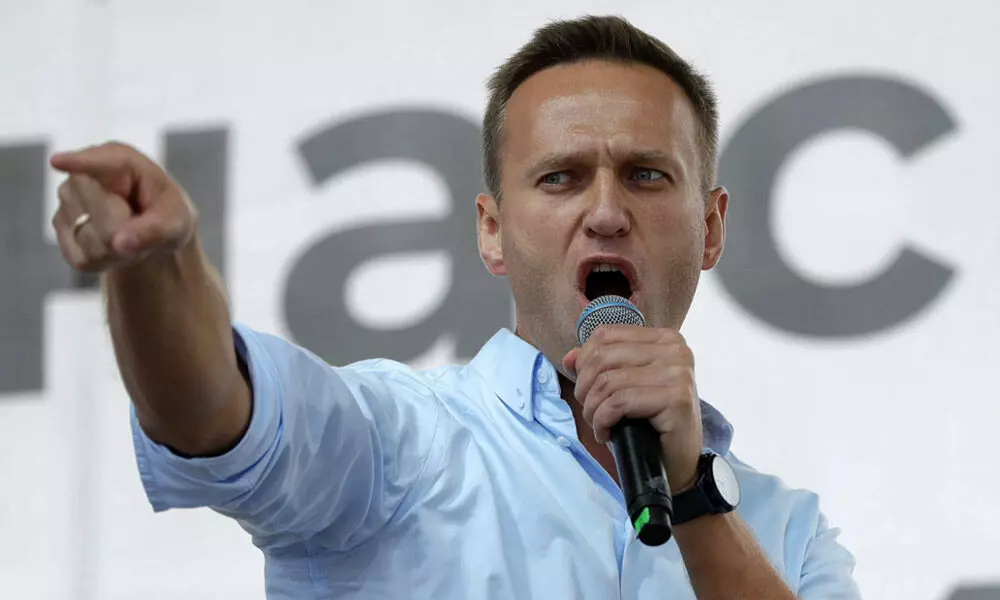What Navalny's arrest says about the Kremlin
Navalny, for all his flaws, is not simply a peripheral figure hyped by Western media. While he's not universally popular and has his detractors, he has unquestionably harnessed the power of the Russian internet
image for illustrative purpose

WATCHING the images of riot police at a crowded Moscow airport, Alexey Navalny's supporters being dragged away, and, finally, the wobbly footage of the Kremlin critic's own detention, the catchphrase made famous by former Russian Prime Minister Viktor Chernomyrdin decades ago comes to mind: We wanted better, but it turned out like always.
Nearly five months after being airlifted to Germany for treatment following a nerve-agent attack that left him fighting for his life, the 44-year-old anti-corruption campaigner last week announced his plan to go home, using social media to call on supporters to greet him at Vnukovo Airport. Telling the world was as much about publicity as it was about security.
Coming back was a direct affront to the Kremlin and jail was always a possible, even probable, outcome. Russia issued an arrest warrant after accusing him of violating the terms of a suspended sentence while in Germany. He faces separate charges of embezzlement. He says both cases are politically motivated.
Still, the theatre around his returns on Sunday, and a rushed court hearing on Monday, is eloquent in what it says about the Kremlin's concerns as we go into the later stages of Putin's incumbency, and about the clout of the military-security establishment, the so-called Siloviki, for whom order will always trump domestic politics. It was the most heavy-handed clampdown in recent years.
When several hundred supporters arrived at the airport, so too did vans filled with police in heavy gear and barricades. Dozens of people were arrested as Navalny's flight — monitored by more than 62,000 people on tracking service Flightradar24 as it came in — was rerouted across town. After landing, he managed a short speech in front of a panel picture of the Kremlin, apologizing to fellow passengers for the hassle, deriding Putin and declaring himself unafraid. Shortly afterwards, he was taken away by uniformed men at passport control.
These hours of live-streamed drama do not sit well with Putin's dismissal of the activist as a mere blogger, not important enough to be poisoned. Sunday, then, would have been an opportunity to do nothing, allowing Navalny to go home and the West to remain silent. Instead, the Kremlin proved it cares very much indeed about the Berlin patient the president prefers not to name. There is no appetite to have him out and about ahead of September's parliamentary elections.
We don't yet know what happens next. Navalny could avoid a long stint behind bars — perhaps if there is domestic outrage to match what we have already seen expressed by Western leaders and the likes of U.S. President-elect Joe Biden's incoming national security adviser, Jake Sullivan. After all, he is being held for failing to meet a prison summons he could hardly have obeyed while recovering from a brush with military-grade poison. Unfortunately for Navalny, that's unlikely to be the calculus considered by those at the top.
Whatever does follow, this episode — from the farcical detail of assailants lacing his underpants with poison to the near-tragedy in Siberia last August — underlines two points.
First that Navalny, for all his flaws, is not simply a peripheral figure hyped by Western media. While he's not universally popular and has his detractors, he has unquestionably harnessed the power of the Russian internet. His influence lies too in his "smart voting" campaigns that target pro-Kremlin candidates by helping voters identify the best-placed opponents — making political competition and alternation something achievable and real for Russians, albeit at a local level.
It's hard to overstate the danger that poses to a regime that thrives on presenting Putin's leadership as the only credible option.
Second, it provides insight into how the cost-benefit analyses look from within the Kremlin. This was a choice. Navalny did not have to be detained immediately. And yet, a government that has long sought to claim support among ordinary Russians as the basis for its legitimacy, turned to the police. This may be a glimpse of more to come. In autocratic regimes, when perceived popular legitimacy fades, force tends to follow, and outrage from abroad will not change that.
Among the crowd of Navalny supporters in Berlin on Sunday was a couple holding a hand-drawn poster that read, "The time of dictators is over. Putin is afraid of Navalny." While the first sentiment remains optimistic, the latter has become a little harder to dismiss after Sunday's debacle.

